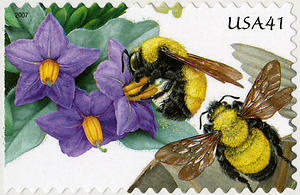The European Union's top watchdog launched an investigation into whether the EU's executive has taken sufficient account of new scientific evidence on the link between certain pesticides and bee deaths. Last month, two scientific studies showed that even low doses of neonicotinoids could harm bumblebees and honeybees, interfering with their homing systems and increasing the chance of individual bees dying while away from the hive. European Union Ombudsman P. Nikiforos Diamandou said he had opened an investigation after a complaint from the Austrian Ombudsman Board, who said the European Commission had failed to take account of the new evidence on the role of neonicotinoids in bee mortality. "In its view, the Commission should take new scientific evidence into account and take appropriate measures, such as reviewing the authorisation of relevant substances," said a statement from the EU Ombudsman's office. The ombudsman has asked the Commission to submit an opinion in the investigation by June 30, after which it will issue a report. Recommendations by the ombudsman are non-binding but are usually followed by the EU's institutions. The Commission said it had already asked the European Food Safety Agency (EFSA) to carry out a full review of all neonicotinoid insecticides by April 30 and that it would take appropriate measures based on the findings. Attached is an article on the influence of Bayer Cropscience on Dutch policy makers (which appeared in the magazine "Vrij Nederland" on April 4, 2012).
Source: Reuters, 17 April 2012
http://www.trust.org/alertnet/news/eu-response-to-bee-death-pesticide-l…

- Login om te reageren
